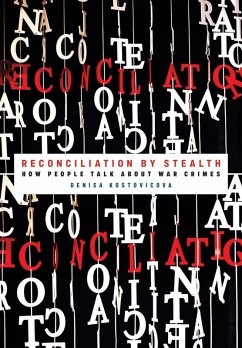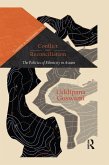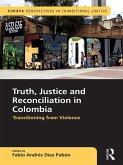Reconciliation by Stealth advances a novel approach to evaluating the effects of transitional justice in postconflict societies. Through her examination of the Balkan conflicts, Denisa Kostovicova asks what happens when former adversaries discuss legacies of violence and atrocity, and whether it is possible to do so without further deepening animosities. Reconciliation by Stealth shifts our attention from what people say about war crimes, to how they deliberate past wrongs.
Bringing together theories of democratic deliberation and peacebuilding, Kostovicova demonstrates how people from opposing ethnic groups reconcile through reasoned, respectful, and empathetic deliberation about a difficult legacy. She finds that expression of ethnic difference plays a role in good-quality deliberation across ethnic lines, while revealed intraethnic divisions help deliberators expand moral horizons previously narrowed by conflict. In the process, people forge bonds of solidarity and offset divisive identity politics that bears upon their deliberations.
Reconciliation by Stealth shows us the importance of theoretical and methodological innovation in capturing how transitional justice can promote reconciliation, and points to the untapped potential of deliberative problem-solving to repair relationships fractured by conflict.
Thanks to generous funding from the London School of Economic and Political Science, the ebook editions of this book are available as Open Access volumes from Cornell Open (cornellpress.cornell.edu/cornell-open) and other repositories.
Bringing together theories of democratic deliberation and peacebuilding, Kostovicova demonstrates how people from opposing ethnic groups reconcile through reasoned, respectful, and empathetic deliberation about a difficult legacy. She finds that expression of ethnic difference plays a role in good-quality deliberation across ethnic lines, while revealed intraethnic divisions help deliberators expand moral horizons previously narrowed by conflict. In the process, people forge bonds of solidarity and offset divisive identity politics that bears upon their deliberations.
Reconciliation by Stealth shows us the importance of theoretical and methodological innovation in capturing how transitional justice can promote reconciliation, and points to the untapped potential of deliberative problem-solving to repair relationships fractured by conflict.
Thanks to generous funding from the London School of Economic and Political Science, the ebook editions of this book are available as Open Access volumes from Cornell Open (cornellpress.cornell.edu/cornell-open) and other repositories.
Dieser Download kann aus rechtlichen Gründen nur mit Rechnungsadresse in A, D ausgeliefert werden.









